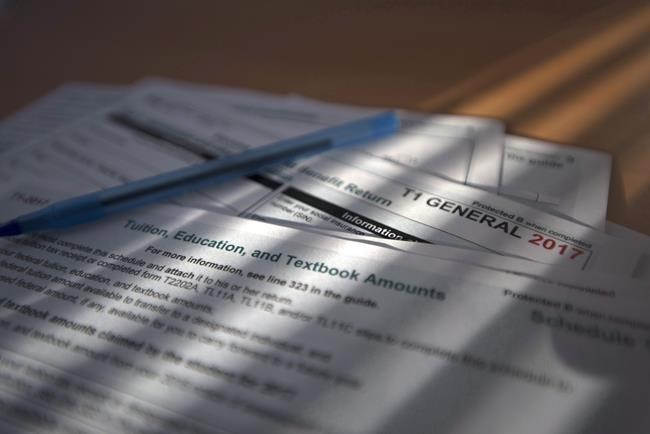HALIFAX — The clock is ticking on 2021 but financial experts say there's still time to trim your tax bill and beef up your return with these simple steps.
Whether you're a student scraping by or an investor with sky-high returns, tax planners say these tips can help save money.
After a roller-coaster year on the stock market, experts say now could be a good time to shed underperforming stocks — especially if other stocks in your portfolio have done well.
"If there's a loser stock in your portfolio, you have to sell it before the end of the year if you want to use that capital loss against any other gains you had this year," said Jamie Golombek, managing director of tax and estate planning with CIBC Private Wealth.
But investors only have until Dec. 29 to execute the trade to ensure it's settled by the end of the year.
"The heat is on," Golombek said. "You don't want to miss that deadline or you've lost the opportunity to take that loss for this tax year."
The end of the year is also a popular time for charitable giving.
Both the federal and provincial governments offer donation tax credits that together can result in tax savings of up to 54 per cent, depending on the amount you give and your province or territory, Golombek said.
Investors who have seen their portfolio increase in value could considering donating those winning securities in-kind to charity, he said.
Gifting publicly-traded securities like mutual funds to a registered charity or foundation not only entitles you to a tax receipt for the fair market value, it eliminates capital gains tax too, Golombek said.
Meanwhile, Canadian post-secondary students with a Registered Education Savings Plan could consider making a withdrawal before the end of the year. Although the funds are taxed as income, if the student's income is below the basic personal amount or they have tax credits remaining for 2021 it will be effectively tax-free, Golombek said.
The basic personal amount — about $13,808 for 2021 — is a non-refundable tax credit that can be claimed by all individuals.
"The tuition credits carry forward, but the basic personal amount ... is lost forever if you don't use it this year," he said. "You’ve got to be strategic."
Another tip is to to contribute to a Registered Retirement Savings Plan.
Although Canadians have until March 1, 2022, for the 2021 tax year, contributions made early help boost tax-deferred growth.
"It's a good time to review how much you've contributed," said Ryan Gubic, a certified financial planner and founder of MRG Wealth Management in Calgary.
The end of the year is also an opportunity to do an overview of your budget and financial goals to plan ahead for the future, he said.
"It's important to understand what you're trying to achieve and how to set yourself up for 2022," Gubic said. "Now is the time to get your ducks in a row."
Financial experts recommend taking time over the holidays to gather receipts and bills from the year, for everything from child care payments to moving expenses.
"A lot of people moved during 2021," said Paul Lynch, partner-in-charge, National Tax Centre, KPMG in Canada. "It's a good time to dig up invoices and receipts ... that might qualify as moving expenses."
Canadians who worked from home will likely be eligible for home office deductions, Lynch said.
Although the simplified method of claiming a home office has been extended, he said some might want to crunch the numbers using the more detailed method to see what's most advantageous.
For Canadians who received income support from the federal government during the pandemic, experts say these benefits are taxable.
If it looks like you might owe taxes, they recommend starting to save now.
"Those amounts are in fact taxable," Lynch said. "That could have an impact on your cash flow once your taxes are due."
Meanwhile, Canadians looking to buy a new luxury vehicle may want to make the purchase before the end of the year.
The 2021 federal budget introduced a new tax on certain new luxury goods that is expected to apply as of Jan. 1, according to a KPMG Tax News Flash last month.
This report by The Canadian Press was first published Dec. 23, 2021.
Brett Bundale, The Canadian Press



